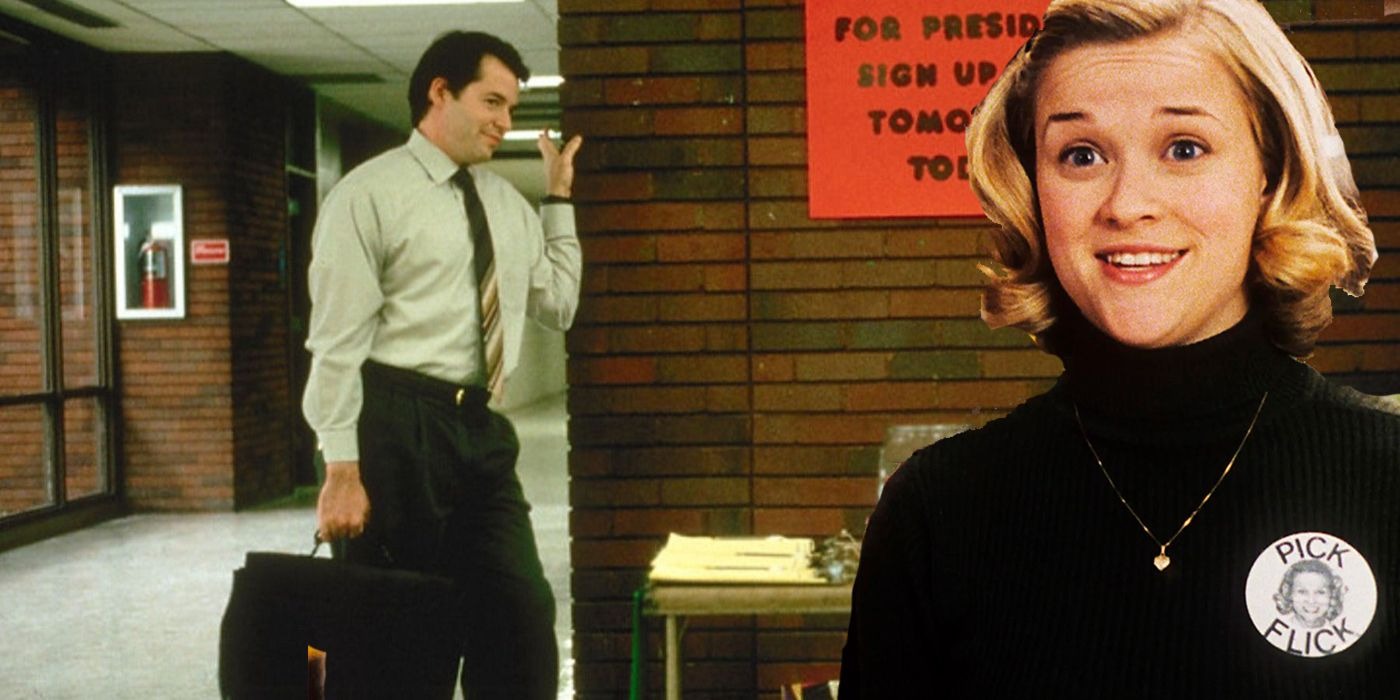The pivotal moment in the 1999 film Election illustrates how the decisions and behavior of its characters leave room for interpretation about morality, challenging viewers to discern who truly embodies virtuous or flawed traits.
Under Alexander Payne’s direction, the film becomes a sharp critique of societal dynamics through the lens of high school politics. It delves into the effects of intertwining personal vendettas with professional responsibilities, hinting at the larger disruptions that would shape the next millennium.
Set despite the chaotic environment of a high school election, the story uncovers the darker facets of ambition and greed within human nature.

Redefining the Teen Comedy Genre
Breaking away from the formulaic style of teen comedies, Election integrates bold themes, including candid depictions of profanity, se*xual issues, and contentious gender interactions.
The cast delivers an extraordinary synergy, with Reese Witherspoon shining as the fiercely determined Tracy Flick and Matthew Broderick portraying Jim McCallister, a teacher driven by a personal vendetta.
As the election intensifies, the narrative spirals into morally fraught territory, reaching a resolution that ties together its chaotic events.
A Misstep on Election Day
On the day of the much-anticipated vote, Jim makes a choice that starkly contradicts the moral code he outwardly upholds. His character’s flaws are foreshadowed in the opening sequence, where his effort to clean the staff refrigerator ends in a clumsy mishap.
While intending to be helpful by tidying up, his actions inadvertently burden the custodian. This moment parallels the broader themes of his misguided good intentions causing unintended harm.
Jim’s Resentment Toward Tracy Flick
Jim’s growing envy of Tracy stems from her intelligence and unrelenting ambition, traits he perceives as unjustly bolstered by external factors like her mother’s support.
His resentment escalates after she defaces Paul’s campaign poster, prompting him to tamper with the election by discarding two of her ballots. While he rationalizes this act as ensuring fairness, it finally reveals his deeper motive: a selfish desire to see Tracy experience defeat.
Paul’s Surprising Voting Decision
Paul Metzler, played by Chris Klein, is coaxed into running for president by Jim, who views him as an easily manipulated competitor. Yet, Paul’s personal integrity emerges during the election when he votes for Tracy instead of himself, deeming it the honorable choice.
This twist injects humor into the story’s critique of political absurdities. Ironically, Paul’s single vote cements Tracy’s victory, underscoring the unpredictable consequences of individual choices.
The Moral Backbone of the Election
Although Paul might seem the most ethical figure, his lack of awareness diminishes his standing. Larry Fouch, however, takes on the mantle of integrity. After Jim tampers with the ballots, Larry’s determination ensures every vote is counted accurately.
His insistence on fairness reveals a depth of character absent in the others, as he challenges Jim and the administration to rectify the wrongdoing.
Larry’s Stand for Justice
Larry’s firsthand knowledge of the vote-counting process makes him acutely aware of potential tampering. His immediate suspicion of Jim and refusal to reveal the results without verification highlight his commitment to upholding justice. Whether driven by personal values or a desire to validate his efforts, Larry’s persistence ensures that fairness prevails.
Tracy’s Success After the Election
As the story concludes, Tracy achieves her long-standing goals, excelling in academics and securing admission to Georgetown University.
However, her achievements come at the cost of meaningful relationships, leaving her socially isolated. Even with her newfound success, her life remains centered on work, echoing the same patterns of loneliness that plagued her during high school.
Glimpses of Tracy’s Future
Years after the election, Jim catches sight of Tracy in Washington, D.C., stepping out of a limousine with a congressman, signaling her ascent into a life of prominence.

While test audiences were shown an alternate ending, the final cut leaves her companion’s identity ambiguous, hinting at the continued tension between her professional achievements and personal fulfillment.
Jim McCallister’s Complex Character
Jim’s outward image of a devoted educator and loyal friend unravels as his internal bitterness comes to light. His disdain for Tracy is fueled by the fallout from his friend Dave’s inappropriate relationship with her, which cost Dave his career.
Instead of holding Dave accountable, Jim unfairly blames Tracy and later reveals his own moral failings by pursuing an affair with Dave’s ex-wife.
Jim’s Stagnation and Hypocrisy
Jim’s resentment blinds him to the reality of Dave’s misconduct, portraying Tracy as the instigator of his downfall. His inability to grow or recognize his own shortcomings underscores his character’s stagnation.
By dismissing the only student who seeks his guidance, Jim’s actions cement his role as an ineffective and embittered educator.
The Film’s Broader Themes
Election challenges audiences to assess each character’s actions and motivations. While Jim’s self-interest hinders his ability to adapt, Tracy’s relentless drive is portrayed as both admirable and isolating.
The story mirrors the challenges of real-life ethical dilemmas, encouraging viewers to confront their own biases in a world where neutrality often feels unattainable.



